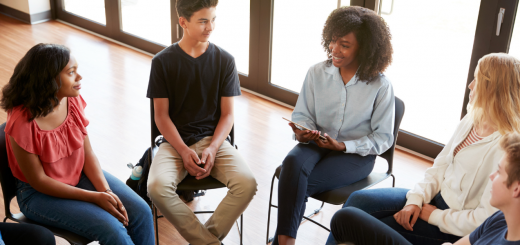Teachers’ Day 2022: From Youtube channels to holding classes under a flyover, meet six teachers who have pioneered education in their own ways
From a teacher in Punjab who started a Youtube channel to make Maths accessible to a teacher in Gujarat who has introduced an approach to let students take decisions at all administrative levels at their school, The Indian Express talked to educators who have made a difference.
The ‘school’ under a bridge in New Delhi
For 15 years now, Rajesh Kumar, 52, has been teaching out-of-school children under a flyover in Delhi.
Kumar’s informal school, which he calls “The Free School Under the Bridge”, operates under the overhead tracks near the Yamuna Bank metro station. It caters to children of the farming community in the area.

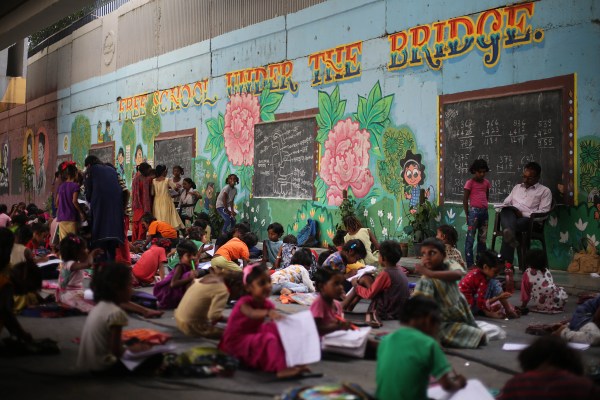 Express Photo by Tashi Tobgyal New Delhi
Express Photo by Tashi Tobgyal New Delhi
The school began in 2007 with 60-odd children. When the initiative first began, Kumar’s focus was on teaching non-enrolled students and helping them get admissions in the government schools in the Shakarpur area.
“Now there are around 250 students – 150 girls in the morning shift and 100 boys in the afternoon shift. When I started, it was just me. But now there are four other teachers who teach on a voluntary basis,” Kumar said.
A sizable number of children attending it at the moment are already students who come for free tuition classes. However, children are still being prepared to join a class appropriate for their age at mainstream schools, with around 40 children being admitted to regular schools this year.
Primary school in Maharashtra that went digital even before electricity reached the village
For a government-run primary school in the tribal village of Pasthepada in Maharashtra’s Thane district, the digital transition during the pandemic was smooth. This was all thanks to Sandeep Gund, a teacher, who had transformed the local Zilla Parishad school with a fully digital approach even before regular electricity supply arrived in the village.
In 2009, when Gund was appointed to the school, he started using foldable solar panels to charge his laptop, kick-starting tech-enabled learning for students. He later bought two tablets.

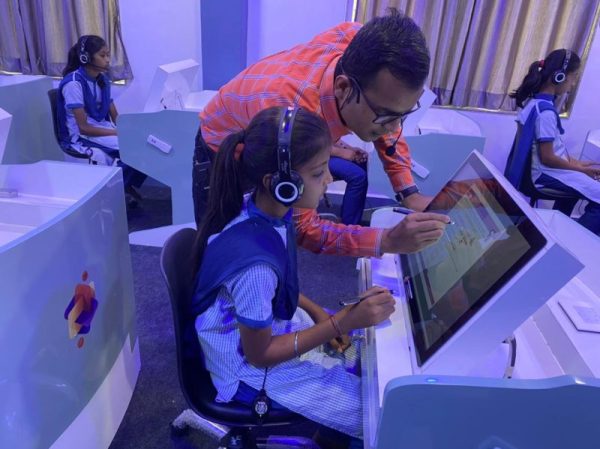
Gund went on to crowdsource money and seek funding from corporates to incorporate e-learning, 3-D technology, among others in his teaching methodology.
Students at his school no longer carry bags. A solar-powered tablet, consisting of all of the required material, and a digital pen are all they need.
Widely renowned for pioneering the format, about 40 schools in the area replicated it in the beginning. At present, the model is followed in 40,000 schools not just in Maharashtra but across the country.
Gund is today part of several committees on digitising education and is currently working closely with the Maharashtra government’s rural development ministry to create the state’s first futuristic classroom.
“A few tech-savvy Zilla Parishad teachers along with me founded an organisation that provides technical support to the government. No private school in the country has such a concept. We will have created interactive screens where teachers develop their own content, share it live with children…Models can be brought in, and 3-D simulation can be done. Exams can take place online through gamified ways and so much more,” he said.
A Gujarat school principal who lets his students make all decisions
The initiatives of Rakesh Patel, the principal of the Nava Nadisar Prathmik Shala in the Panchmahal district of Gujarat, brought in change to an entire village. Popularly known as “Masti ki pathshala”, the government school in the tribal village consisting of daily wage labourers, is run entirely by students. Every decision – from the school building to everyday management – is taken by them. Recently, they even chose colours for uniforms and termed it rainbow-form.
The school, which inculcated responsibility and confidence in its students, has been transformational for the village with people taking increasing responsibility to participate in social events. Students from the schools are now graduates, post-graduates, and job-holders.

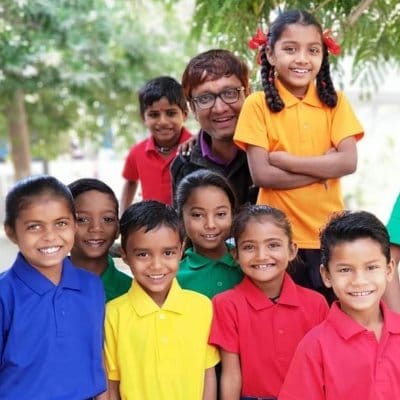
“With a sense of belonging among villagers, who now understand the importance of education and the power it holds, the school has successfully brought in a social change among parents with 100 per cent enrollment, both among boys and girls,” said Patel.
Delhi teacher who went beyond the classroom to track down her students during pandemic
Sarita Bharadwaj, 59, has had three other jobs before she became a teacher. She worked as a stenographer at the Delhi High Court for 10 years. But teaching is where her heart was. After her marriage, she decided to pursue her B.Ed. As the Covid-19 pandemic hit, Bharadwaj, along with other teachers in the public school in Paschim Vihar, did not have any means to reach out to their students. “The schools got shut. We were barely able to get hold of the teaching material and the class lists” she said.

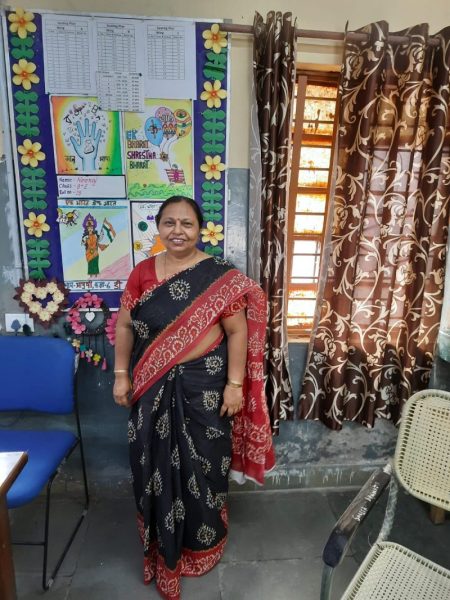
Bharadwaj managed to find contacts of some students in her previous classes by sending messages on common WhatsApp groups. She appointed her nearby grocery store delivery person to check the addresses of these 6th standard students.
Most parents of her students were daily wage labourers and did not have smartphones. So she photocopied a month’s worth of worksheets for some students. “I would call the students at night, after 9-10pm because that is when their parents would return from the day’s work and the children would have access to the phone to clear their doubts”, she said.
Her husband’s death in November last year was hard on Bharadwaj and even considered leaving her job. “My children convinced me to keep my job and I am grateful for the children I get to meet at school,” she said.
Kolkata traffic cop doubles up as teacher for 8-year-old
This April, pictures of a traffic sergeant helping an eight-year-old with his studies had gone viral. A boy was seen sitting on a plastic sheet taking down notes, with Sergeant Prakash Ghosh standing with a stick next to him supervising his work.
Akash Routh, his student, had lost his father and grandfather during the pandemic. Financial stress was high and during the second lockdown, his mother started to sell food at their roadside eatery. He had to help in the shop, leaving little time for studies.

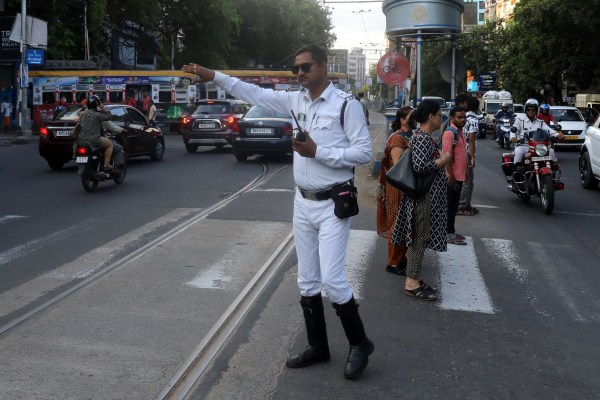 Sergeant Prakash Ghosh 38, working under South East Traffic Guard of Kolkata police at his work near Gariahat ITI in Kolkata on Friday, September’ 02,22.Express photo by Partha Paul.
Sergeant Prakash Ghosh 38, working under South East Traffic Guard of Kolkata police at his work near Gariahat ITI in Kolkata on Friday, September’ 02,22.Express photo by Partha Paul.
“I used to stand there as part of my job. One day she (Akash’s mother) complained to me that she had big hopes but after the two deaths in her family, her son was helping her at the shop and was not studying at all,” Ghosh said, adding: “So, while doing my official duty, I used to guide him,” said Ghosh.
Ghosh is from Jangipur in the Murshidabad district of the state, which is more than 250 kilometres away from Kolkata. He travels home once a week.
“I get to see my three-year-old son for a day…I don’t get to teach him. When Akash’s mother told me that he doesn’t concentrate on studies, I took charge.”
Acknowledging that opportunities for equal educational experiences may not exist, Ghosh said that small efforts can bring about change. “I plan to make a difference in the lives of the children I meet along the way,” he said.
He made Maths fun through Youtube
Arun Kumar Garg, 39, is the principal of a government model school in the Datewas village of the Mansa district in Punjab. During the Covid-19 pandemic, Garg started a YouTube channel called “Abhyaas by Arun sir” to deliver free Mathematics lessons in Punjabi. The channel currently has more than 11k subscribers.

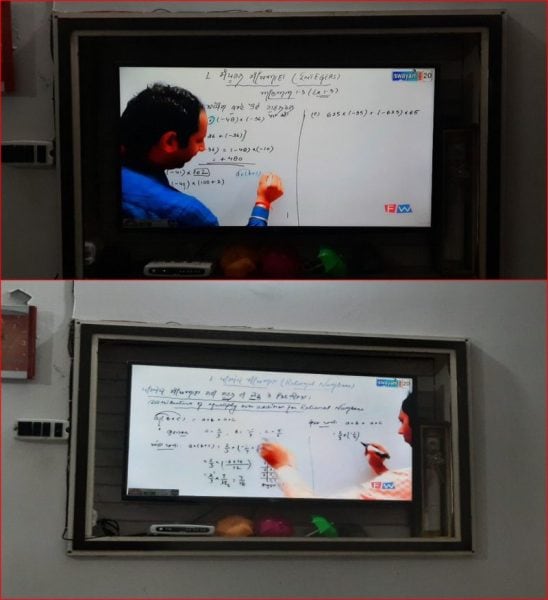
Apart from YouTube, he has also delivered 163 lectures on DD Punjabi, the NCERT’s Swayam and e-Vidya portals during the period to make the subject easy for students.
As his channel’s tagline “Now maths is easy with Arun ” might suggest, he has always had an activity-based approach to teaching. He has also created several learning-based models at this school: a roman wheel to learn Roman numerals, VeDiMa for Vedic multiplication, 3D maths, among others.
“My only motive is to ensure that students do not fear Maths,” said Garg, who has an MSc in the subject.
A winner of state awards, Garg is also the author of several state and CBSE Maths textbooks. He is also the founder of an initiative called Pehal through which rural girl students are being encouraged and provided help to pursue the science stream. He will be honoured with a National Award at Delhi on Teacher’s Day this year for his efforts.



